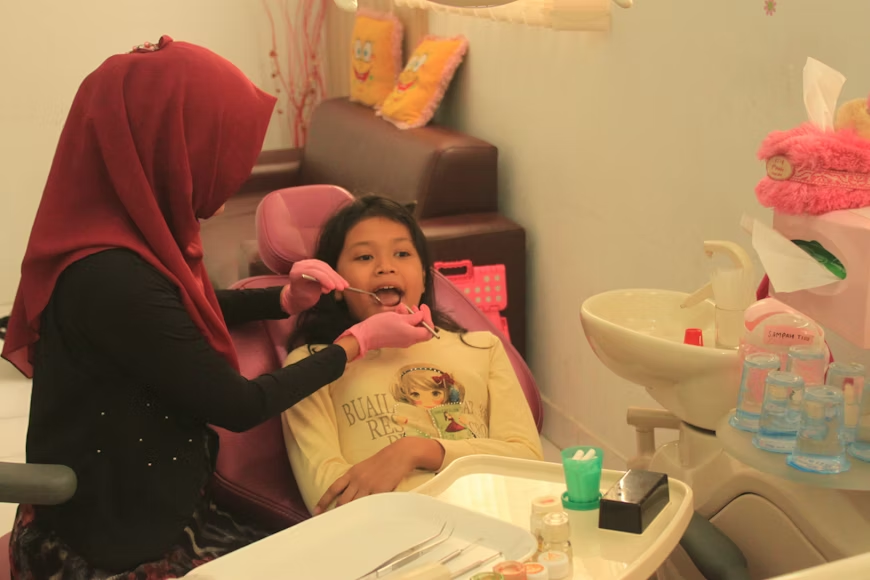The process of selecting appropriate mental health support requires careful consideration of both professional qualifications and personal compatibility factors that significantly influence therapeutic outcomes. Finding qualified psychologists in Beerwah involves navigating complex credentialing systems, treatment specializations, and accessibility considerations within the local healthcare landscape. Research consistently demonstrates that the therapeutic relationship quality serves as the strongest predictor of treatment success, making the selection process critically important for individuals seeking psychological services. This comprehensive guide examines the systematic approach needed to identify and evaluate psychological practitioners who possess both the professional expertise and personal characteristics necessary for effective therapeutic intervention.
Credential Verification and Professional Standing
Psychology Board of Australia registration represents the fundamental requirement for legitimate psychological practice in Australia. All practicing psychologists must maintain current registration, which includes completing continuing professional development requirements and adhering to professional conduct standards. The Psychology Board’s public register provides verification of registration status, qualification details, and any disciplinary actions or conditions affecting practice.
Educational background examination reveals important qualifications distinctions that impact service delivery capabilities. Clinical psychologists complete additional supervised training beyond general psychology degrees, typically including two years of specialized clinical training or equivalent experience. This advanced training provides expertise in psychological assessment, diagnosis, and evidence-based treatment approaches for mental health conditions.
Specialization areas require careful evaluation to ensure alignment with specific treatment needs. Many psychologists develop expertise in particular approaches such as cognitive behavioral therapy, trauma-focused interventions, or family systems therapy. Professional associations like the Australian Psychological Society maintain directories that include specialization information and preferred treatment modalities.
Professional insurance and indemnity coverage indicate commitment to ethical practice standards and provide protection for clients in cases of professional misconduct or treatment complications. Most reputable practitioners maintain professional indemnity insurance through recognized providers, though this information may require direct inquiry.
Treatment Approach Compatibility Assessment
Theoretical orientation significantly influences treatment methodology and therapeutic outcomes. Cognitive behavioral therapy approaches focus on identifying and modifying thought patterns and behaviors that contribute to psychological distress. This structured approach typically involves homework assignments, skill-building exercises, and measurable goal setting.
Psychodynamic approaches emphasize unconscious processes and past experiences that influence current psychological functioning. These longer-term therapies often involve exploring childhood experiences, relationship patterns, and unconscious conflicts. Treatment duration typically extends beyond short-term interventions, requiring greater time and financial commitment.
Humanistic approaches, including person-centered therapy, prioritize the therapeutic relationship and client self-determination. These approaches emphasize empathy, unconditional positive regard, and collaborative goal setting. Clients who prefer less structured, more exploratory therapeutic processes may find these approaches more compatible.
Evidence-based practice integration represents contemporary best practice standards that combine research findings with clinical expertise and client preferences. Practitioners who regularly incorporate current research findings into treatment planning demonstrate commitment to effective intervention approaches.
Accessibility and Practical Considerations
Geographic accessibility within Beerwah affects treatment consistency and convenience factors that influence long-term engagement. Transportation requirements, parking availability, and clinic location relative to work or home can significantly impact appointment attendance and treatment continuity.
Appointment scheduling flexibility accommodates varying work schedules and family commitments that often complicate mental health treatment engagement. Some practitioners offer evening or weekend appointments, while others maintain strict business hour schedules. Extended appointment durations may be available for complex cases or intensive therapy approaches.
Fee structures and Medicare rebate eligibility require careful evaluation to ensure sustainable treatment access. Psychology services may qualify for Medicare rebates under Mental Health Treatment Plans, though rebate amounts typically cover only portion of full fees. Private health insurance coverage varies significantly between providers and policy types.
Technology integration, including telehealth capabilities, has become increasingly important following COVID-19 adaptations. Video consultation options provide flexibility for clients with transportation limitations or geographic constraints, though some therapeutic approaches may be less effective in remote formats.
Initial Consultation and Compatibility Evaluation
First appointment preparation should include specific goals, symptom history, and previous treatment experiences that inform treatment planning. Written summaries of current concerns, medication information, and relevant medical history expedite the assessment process and ensure comprehensive evaluation.
Communication style assessment occurs naturally during initial consultations and significantly influences therapeutic relationship quality. Some clients prefer direct, solution-focused approaches, while others benefit from more exploratory, process-oriented communication styles. Cultural sensitivity and awareness of diverse backgrounds also affect compatibility.
Comfort level evaluation includes both physical environment factors and interpersonal dynamics that influence therapeutic engagement. Office environment, privacy considerations, and practitioner demeanor all contribute to overall comfort and safety perceptions.
Treatment planning collaboration indicates practitioner approach to client involvement in therapeutic goal setting and intervention selection. Practitioners who actively involve clients in treatment planning typically achieve better engagement and outcomes compared to those who impose predetermined treatment approaches.
Red Flags and Quality Indicators
Professional boundary maintenance represents critical ethical practice standards that protect both clients and practitioners. Appropriate boundaries include maintaining professional relationships, avoiding dual relationships, and respecting confidentiality requirements. Practitioners who suggest friendship, business relationships, or inappropriate personal disclosure demonstrate concerning boundary violations.
Treatment progress monitoring through regular assessment and goal evaluation indicates commitment to effective service delivery. Quality practitioners regularly review treatment progress, adjust interventions based on client response, and collaborate on goal modification when appropriate.
Referral willingness when treatment approaches prove ineffective or when specialized services are needed demonstrates professional integrity and client welfare prioritization. Practitioners who persist with ineffective approaches or refuse to consider referrals may prioritize financial considerations over client wellbeing.
YOU MAY ALSO LIKE: Ero Me: Unlock Your True Self for a Fulfilling Life










